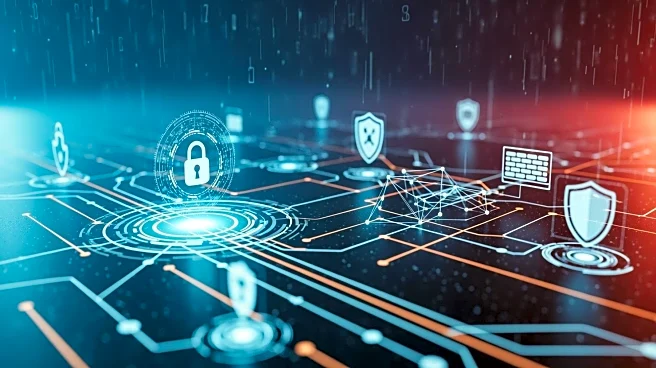What's Happening?
Cybersecurity experts are advising organizations to reassess their security strategies in light of evolving threats. The focus is on dispelling common myths and adopting a proactive mindset that balances
prevention with preparedness. Experts recommend using password managers and enabling multi-factor authentication (MFA), although they acknowledge that MFA can be bypassed. The National Institute of Standards and Technology (NIST) has published encryption tools to resist quantum computer attacks, urging system administrators to transition to these standards. Additionally, there is a debate over allowing law enforcement to break end-to-end encryption, with security experts and civic society pushing back against such proposals, citing privacy concerns.
Why It's Important?
The evolving nature of cyber threats necessitates a shift in how organizations approach cybersecurity. As techniques and threat actors continue to develop, businesses must prepare for inevitable cyber-attacks. The push for quantum-resistant encryption highlights the urgency of adapting to new technological challenges. Furthermore, the debate over end-to-end encryption underscores the tension between privacy rights and security needs. Organizations that fail to update their security measures risk significant data breaches, which can lead to financial losses and reputational damage.
What's Next?
Organizations are expected to continue updating their security protocols to address emerging threats, including quantum computing risks. The ongoing debate over encryption may lead to legislative changes, impacting how businesses and individuals protect their communications. Companies will likely invest in training and resources to ensure their cybersecurity teams are equipped to handle new challenges. As the landscape evolves, collaboration between tech providers, government agencies, and security experts will be crucial in developing effective defenses.
Beyond the Headlines
The ethical implications of breaking encryption for law enforcement purposes raise concerns about individual privacy rights. As governments consider such measures, the balance between security and privacy will remain a contentious issue. Additionally, the integration of AI in cybersecurity strategies presents opportunities and challenges, as AI can both enhance defenses and be exploited by malicious actors.









